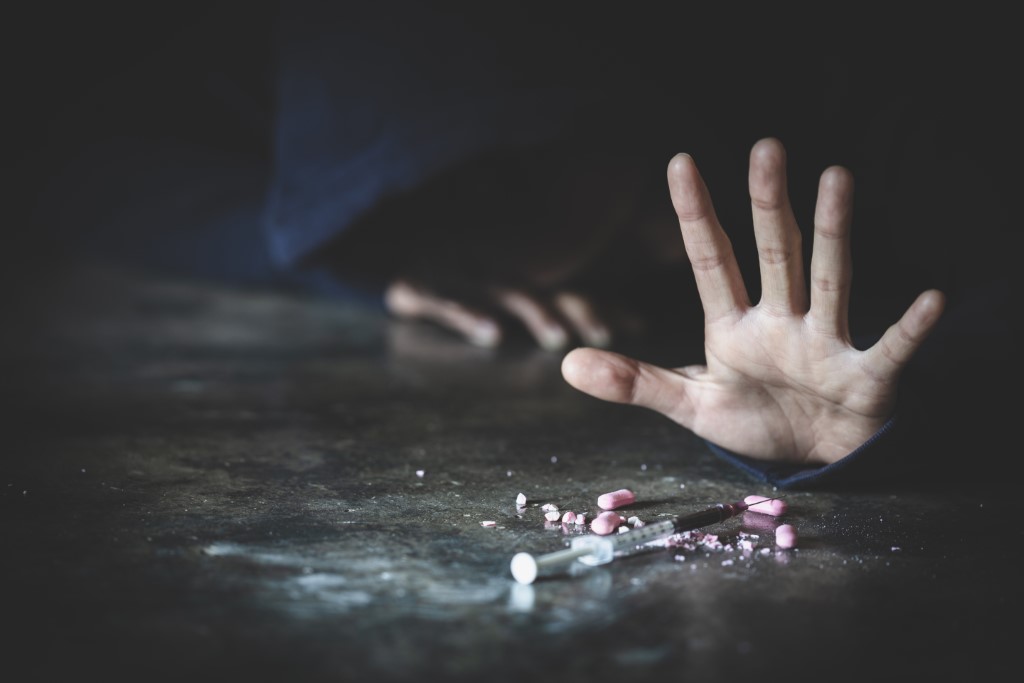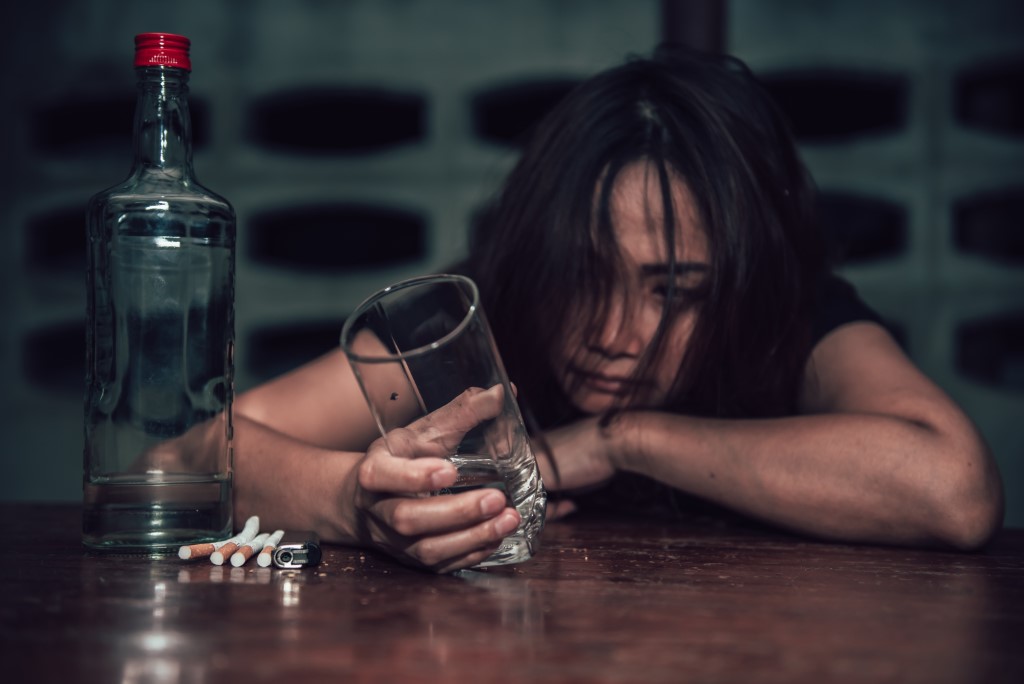
Navigating the Perils of Mixing Alcohol and Benzos
Benzodiazepines, commonly known as benzos, serve as sedatives frequently prescribed to address issues like anxiety, stress, and insomnia. Despite their widespread use in South Africa, these drugs possess a high potential for abuse and addiction. When it comes to substances frequently combined with benzodiazepines, alcohol tops the list. Mixing benzos with alcohol can be an incredibly perilous endeavor, as the combined effects of both substances can lead to severe consequences. Both alcohol and benzodiazepines act as central nervous system depressants, slowing down heart rate and breathing. Combining these two substances, especially in excessive quantities, can result in coma, overdose, and even fatalities. To safeguard your well-being, it’s crucial to comprehend how both substances function and their impact on the body to avoid risky consumption and potentially fatal overdoses.
Understanding Benzodiazepines Benzodiazepines are a class of central nervous system depressants that induce a sedative effect on the central nervous system. These drugs are often prescribed to alleviate symptoms of anxiety disorders, insomnia, and mental health conditions like depression, promoting relaxation and tranquility.
Benzodiazepines essentially amplify the effects of gamma-aminobutyric acid (GABA) receptors within the brain, leading to increased relaxation, reduced anxiety, and feelings of drowsiness.
The World of Alcohol Alcohol, a psychoactive substance, exerts a depressant effect on its users, resulting in various emotional responses. While some individuals experience reduced inhibitions, relaxation, and heightened confidence, others may become lively and energetic, while some may display violent or aggressive behavior under its influence.
Mixing Benzodiazepines and Alcohol Benzos and alcohol, both classified as depressant drugs, exhibit what is known as a synergistic effect on the brain, particularly within the central nervous system. Due to the fact that both drugs are central nervous system depressants, their sedative effects intensify when consumed together. This heightened sedation significantly elevates the risk of dangerous and potentially fatal outcomes.
Furthermore, combining benzos and alcohol heightens the risk of memory loss and an overall inability to recollect one’s actions. The ingestion of high doses of both substances may lead to frequent mood swings, behavioral changes, and other perilous symptoms.
Users may also experience blackouts, during which they remain oblivious to their actions, posing life-threatening risks. In general, mixing these two substances can substantially impair a person’s daily functioning and overall life satisfaction.
As an individual develops psychological and physical dependence on a specific drug, they may prioritize the substance over basic necessities, such as eating and sleeping. This marks the point at which addiction reaches its most precarious stage, as users begin to neglect fundamental self-care and become disconnected from their friends and family.
The Side Effects of Benzo and Alcohol Abuse The adverse effects associated with benzodiazepines and alcohol abuse include:
- Feelings of confusion
- Extreme drowsiness
- Impaired coordination
- Slurred speech
- Dry mouth
- Blurred vision
- Constipation
- Concentration difficulties
- Lower body temperature
- Loss of consciousness
- Elevated blood pressure
- Muscle weakness
- Vomiting
- Respiratory depression
Binge Drinking Engaging in frequent, heavy drinking sessions can lead to alcohol poisoning, characterized by symptoms like:
- Reduced body temperature (potentially leading to hyperthermia)
- Confusion
- Nausea
- Vomiting
- Breathing difficulties
- Cyanosis (bluish skin)
- Altered consciousness (fluctuating between consciousness and unconsciousness)
- Seizures
- Death due to intoxication
The Long-Term Effects of Alcohol and Benzo Abuse The long-term hazards of alcohol use disorder include:
- Alcoholic hepatitis
- Brain tissue damage
- Heart disease
- Steatosis (fatty liver)
- Cardiomyopathy
- Irregular heartbeat
- Cancer in various organs
- Liver disease
- Stroke
- Death
The enduring side effects of benzodiazepine abuse may encompass:
- Frequent headaches
- Urinary problems
- Libido fluctuations
- Tremors (shakes)
- Jaundice
- Gynecomastia (enlarged breast tissue in males)
- Low blood pressure
- Development of various blood disorders
Handling Overdoses Combining alcohol and benzodiazepines significantly escalates the risk of overdose. In the event of a drug overdose, immediate action is paramount. Dial 999 to request urgent medical assistance. Sharing any information related to drug abuse over the phone may also save a life, as medical professionals can provide life-saving instructions.
Seeking Addiction Treatment A variety of treatment options exist to aid individuals in overcoming benzodiazepine and alcohol addiction, as well as other substance use disorders. Treatment can be tailored to individual circumstances to offer the most effective support during the journey to reclaiming one’s life.
Detoxification The initial stage of treatment at an alcohol rehab center or a general residential treatment center is the detoxification process. This process involves allowing all traces of a substance to exit the body, often leading to predictable withdrawal symptoms as the body adapts to functioning without the drug’s presence.
Detox for Benzos and Alcohol For benzodiazepine and alcohol detox, individuals should undergo medically-assisted detox to ensure safety and facilitate the gradual adaptation of the body to the absence of each drug, while effectively managing withdrawal symptoms. Medical professionals closely monitor progress throughout medical detox to provide support when needed.
Alcohol Withdrawal Symptoms During alcohol detox, individuals will experience predictable withdrawal symptoms. These symptoms can vary in intensity based on factors such as body type, genetics, and the severity and duration of substance abuse. Given the potential danger of alcohol withdrawal symptoms, medical supervision is always recommended.
Initial symptoms may include:
- Anxiety
- Tremors
- Vomiting
- Headaches
- Insomnia
- Seizures
- Sweating
- Nausea
Over time, individuals may experience hallucinations, delusions, fever, elevated blood pressure, confusion, and a rapid heartbeat.
Benzodiazepine Withdrawal Symptoms The initial withdrawal symptoms of benzodiazepines may include:
- Muscle cramps
- Frequent headaches
- Appetite changes
- Increased light sensitivity
- Memory impairment
- Panic attacks
- Sleep disturbances
- Tinnitus
- Depression
- Concentration difficulties
- Significant weight loss
- Anxiety
Severe withdrawal effects may encompass muscle twitching, seizures, derealization, delusions, confusion, burning sensations, psychosis, and high blood pressure.
Substance Use Disorder Treatment Detox alone is seldom sufficient for achieving long-term sobriety. Individuals grappling with benzodiazepine addiction often contend with co-occurring mental health conditions, such as depression or anxiety. People who were once prescribed these drugs may develop dependence as their tolerance increases, necessitating higher doses for the same effects. They may inadvertently self-medicate by combining benzodiazepines with alcohol, unaware of the dangers posed by both addiction and fatal side effects. In cases involving co-occurring mental health conditions, therapy is widely regarded as the best option post-detox. Addressing the root cause of substance misuse, whether it be physical or mental pain, is often necessary to conquer addiction.
Some individuals opt for inpatient treatment following medical detox, residing at a treatment facility. Inpatient rehab centers offer round-the-clock medical supervision, access to prescription medications when required, and other valuable resources to guide individuals through the recovery process.
Others may prefer outpatient alternatives, allowing them to receive therapy without disrupting their daily schedules. This option offers greater flexibility in treatment planning and scheduling, preventing conflicts with work, family commitments, and other life obligations.
Therapy and Counseling for Substance Abuse Several therapeutic modalities can facilitate long-term recovery and lasting sobriety. The most suitable approach depends on the underlying causes of substance abuse. Talking therapies can help identify critical challenges or behaviors contributing to dangerous drug use, thereby reducing the risk of relapse and future instances of mixing benzos with other substances.
- Cognitive Behavioral Therapy (CBT): An effective method for recognizing harmful behaviors and thought patterns, CBT helps individuals deal with ongoing issues and triggers they encounter daily.
- Trauma-Focused Therapy: This therapy delves into the past, identifying traumatic experiences that may have led to alcohol consumption as a coping mechanism. Addressing past trauma can be essential, as trauma significantly contributes to addiction development, with specialized treatment plans available to help individuals overcome addiction while addressing past trauma.
- Additional Therapeutic Approaches: Other therapeutic options include support groups, counseling sessions, and programs like the 12-step program. Healthcare professionals can assist in identifying the most suitable approach for each individual’s unique circumstances.
In conclusion, understanding the grave dangers associated with mixing alcohol and benzos in South Africa is essential for the health and well-being of individuals facing these challenges. Seeking appropriate treatment and support can make all the difference in breaking the cycle of addiction and promoting lasting recovery.